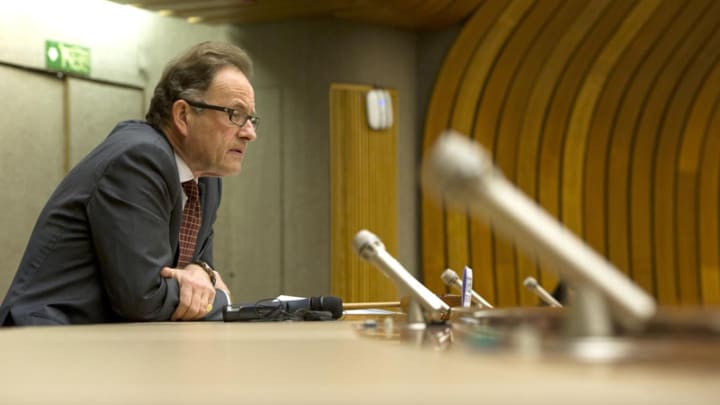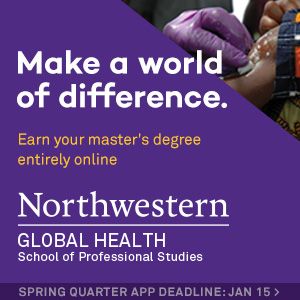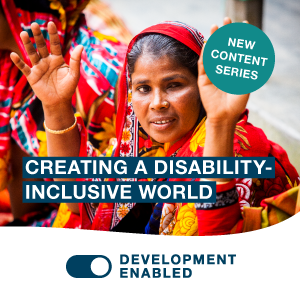geneva hq WEF with now 3 ir4 hubs at beijing tokyo san francisco
hq of who wto itu unctad (plus more of un listed below)
unctad biannual summit and annual report on trade connecting sustainability goals
envoys who hub out of unctad include:
jack ma youth livelihoods, entrepreneurship
sophia "envoy for artificials)"- hanson hong kong
some specials
editiorial epicentre for guterres requested report on digital cooperation by worldwide experts includinmg melinda gates and jack ma due march 2019
Pope's envoy decries lost chance to reform global finance system. 06 June 2018. TDB 65th. Cardinal Peter Turkson, who leads the Vatican's work on “Humanam ...
https://twitter.com/UNGeneva 6 main organs
The United Nations Office at Geneva (UNOG) is the second-largest of the four major office sites of the United Nations(second to the United Nations Headquarters in New York City). It is located in the Palais des Nations building constructed for the League of Nations between 1929 and 1938 at Geneva in Switzerland, and expanded in the early 1950s and late 1960s.
Besides United Nations administration, it also hosts the offices for a number of programmes and funds such as the United Nations Conference on Trade and Development (UNCTAD), the United Nations Office for the Coordination of Humanitarian Affairs (OCHA) and the United Nations Economic Commission for Europe (ECE).
The United Nations and its specialized agencies, programmes and funds may have other offices or functions hosted outside the Palais des Nations, normally in office spaces provided by the Swiss Government.
UN specialized agencies and other UN entities with offices in Geneva hold bi-weekly briefings at the Palais des Nations, organized by the United Nations Information Service at Geneva.
Headquartered at Geneva:[citation needed]
United Nations Conference on Trade and Development (UNCTAD), the United Nations Office for the Coordination of Humanitarian Affairs (OCHA) and the United Nations Economic Commission for Europe (ECE).
- Conference on Disarmament
- International Bureau of Education
- International Computing Centre
- International Labour Organization
- International Trade Centre
- International Telecommunication Union
- Joint Inspection Unit
- Joint United Nations Programme on HIV/AIDS
- Office of the United Nations High Commissioner for Human Rights
- United Nations Chief Executives Board for Coordination
- United Nations Compensation Commission
- United Nations Conference on Trade and Development
- United Nations Economic Commission for Europe
- United Nations High Commissioner for Refugees
- United Nations Human Rights Council (see also United Nations Commission on Human Rights)
- United Nations Institute for Disarmament Research
- United Nations Institute for Training and Research
- United Nations Non-Governmental Liaison Service
- United Nations Office for the Coordination of Humanitarian Affairs
- United Nations Office on Sport for Development and Peace
- United Nations Research Institute For Social Development
- World Health Organization
- World Intellectual Property Organization
- World Meteorological Organization
Presence at Geneva:
- International Atomic Energy Agency (headquarters are in Vienna)
- United Nations Environment Programme (headquarters are in Nairobi)
- United Nations Educational, Scientific and Cultural Organization (headquarters are in Paris)
- United Nations Industrial Development Organization (headquarters are in Vienna)
- World Food Programme (headquarters are in Rome)
- United Nations World Tourism Organization (headquarters in Madrid)
Q&A: UN needs almost total reform, says Geneva chief
By Paula Dupraz-Dobias // 04 December 2018

GENEVA — For some, 2018 may represent the beginning of the undoing of the global rules-based system set up after the end of the World War II. A year after announcing its departure from the Paris Agreement on climate change, Washington continues to disengage with the United Nations — withdrawing from the Human Rights Council and cutting funds to programs such as UNRWA, the U.N. agency that supports Palestinian refugees. Meanwhile, the United Kingdom is close to exiting the European Union in March 2019 and the World Trade Organization is finding its authority challenged.
“We have to do it together; otherwise, we shall all die together.”
— Michael Møller, director-general, U.N. Geneva office
As growing concerns over climate change, human rights abuses, and mass migration intensify pressure for U.N. reform, Michael Møller, director-general of its Geneva office in Switzerland, insists that multilateralism is all the more vital.
“There isn’t a single one of these [global] problems that can be solved by a single actor,” he said. “We have to do it together; otherwise, we shall all die together.”
But the Danish diplomat, who has spent nearly 40 years serving the U.N., said the organization must work harder to keep pace with the changing nature of global challenges. Devex sat down with the 66-year-old in his office at the Palais des Nations.
The conversation here has been edited for length and clarity.
Secretary-General António Guterres has strongly defended the need for reform within the U.N. What specifically needs to change?
Pretty much everything. This is an organization created 70 years ago that has not entirely kept pace with rapid changes, realities, and big existential challenges such as climate change, migration, and health.
We have to change our peace and security mechanisms, the way we do development, our internal management, and back-office functions. It’s a pretty ambitious reform program that we have set in place.
Regarding development, where will funding for the Sustainable Development Goals come from, especially as foreign aid is being reassessed by major donors?
The vast majority of money will come from the private sector. We will need several trillion dollars annually to put these goals into action and show results. Governments do not have that money. It must be a blended financing approach.
We are using our convening power to get actors who didn’t speak together before involved in [joint] financing — the investment community, the banking sector, different organizations based [in Geneva], and the Swiss government, which wants to make Geneva a sustainable finance hub.
Are there risks in partnering with the private sector for development?
There is a huge risk of not partnering with the private sector.
We will not achieve anything if everyone is not on board. The private sector has accepted that unless they change their business models to become sustainable, they may not be around for long. People will not buy their products or work for them, and will certainly not be investing in them.
“For decades, the international system was suspicious of the business community. But this has to change, and it is changing.”
—
We are seeing the creation of new partnerships, new language, and new types of understanding. Businesses are now asking to be part of the conversation, and it is for us to help them figure out how best to do this. For decades, the international system was suspicious of the business community. But this has to change, and it is changing.
How difficult has it become to implement plans with more earmarking of funds for projects?
Donor countries are increasingly giving money that is project-specific, moving away from what we call “core-funding,” which is needed for the day-to-day operations of the organizations.
It is a challenge because it takes away the flexibility of implementing all programs and assuring that we may operate to the best of our ability. But this trend is like a pendulum that swings back and forth, and we already see countries rethinking the wisdom of only funding projects.
Get development's most important headlines in your inbox every day.
Cost-cutting measures, including salary cuts, have been introduced and there is growing reliance on nonstaff consultants for essential work. What is the atmosphere at the U.N.?
Read more:
Exactly the way I imagine you would react if you were subjected to these trends. Since 2008, we have been living in a financial crisis and have been the subject of a “slash and burn” approach by member states to our budgets. We have adapted by improving our processes, adopting a kind of “do-more-with-less” approach. But it has its limits.
By and large, these changes haven’t taken away the dedication of the staff. We are passing through a difficult moment now, but are dealing with it to the best of our capacity.
Even here in Geneva, belt-tightening has meant that some positions have been moved away.
We are seeing some back-office activities move to places that are cheaper and easier to carry out. But the substantive work continues to be here. This ecosystem in Geneva, which has been built up over the past 150 years, allows us to work closely together, not in silos, particularly on the Sustainable Development Goals.
“Some people tend to say that Geneva is the kitchen and New York the dining room.”
—
How important is Geneva on global issues?
Some people tend to say that Geneva is the kitchen and New York the dining room. Geneva is the operational hub of the international system, not just of the U.N. Over 35 U.N. organizations are here ... and many of our partners are here ...
We are very much the place on the planet that has the greatest concentration of international actors, with the ability, and the wherewithal, and the mandates to help member states get to where they need to go.
How threatening is the current rise of nationalism and disrespect of human rights to the values of the U.N.?
They are serious, but this is cyclical. One of the bigger existential problems is the growing gap between political systems that operate in the short term and the long-term solutions needed to tackle life-threatening situations.
This is a structural problem, and it is where the U.N. comes in.
The closing of doors and borders, the walking away from rules and international law are worrying signs. We see a weakening of international solidarity and the very principle of multilateralism, at a time when the world is in dire straits ...
“I take my hat off to the [U.N.] secretary-general, as he has taken on that job at one of the most difficult times in history.”
—
I am fairly confident that reality will impose itself on all of us, and the pendulum will swing back into a different kind of international solidarity.
In August, a close friend and colleague of yours, former secretary-general Kofi Annan, passed away. How important is moral leadership like his own in today’s world?
Globally, it is absolutely crucial. Mr. Annan left us at the wrong time, when his moral voice — one of the few left — was even more necessary than ever.
We have to return to a rules-based world with ethics and moral codes that we can agree to. They do not have to be those that were agreed upon 70 years ago, because the world is changing, and we have to change with it.
Having been at the U.N. for nearly 40 years, have you ever thought of applying for the top job?
(Laughs) That is the worst job in the world. The answer is no. I take my hat off to the secretary-general, as he has taken on that job at one of the most difficult times in history, and has an enormously difficult task ahead of him. It is my job and that of everyone else to support him.


No comments:
Post a Comment